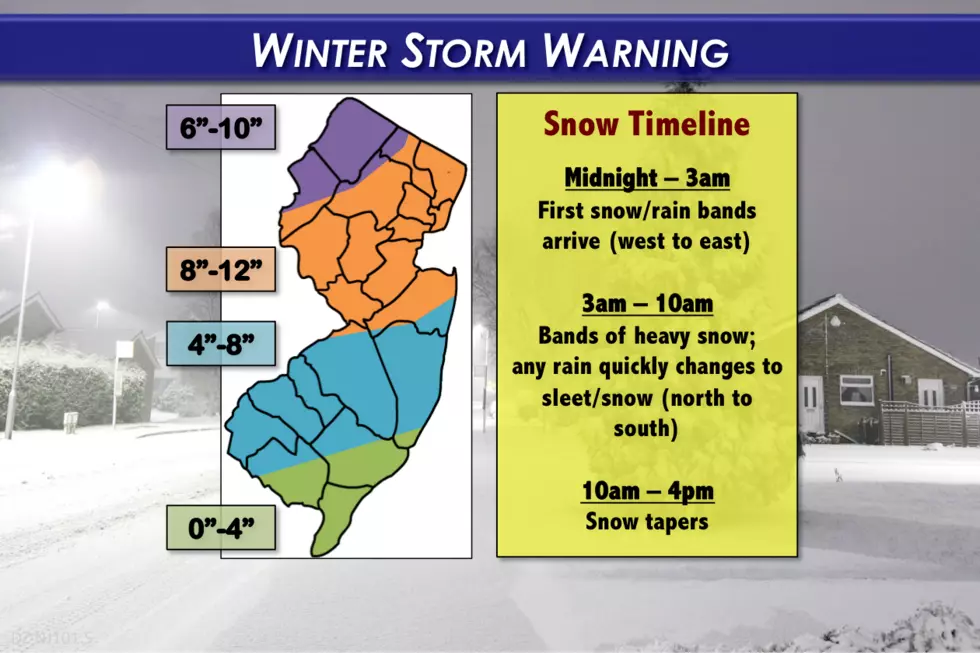
When students die at drunken frat parties, who’s held responsible?
Authorities at Penn State University are investigating the death last week of New Jersey native Timothy Piazza at fraternity party.
New Jersey, meanwhile, has seen a number of students die as a result of heavy drinking and partying in the last decade, resulting in lawsuits that cost the institutions hundreds of thousands of dollars.
Piazza was intoxicated when he fell down the basement stairs last Thursday night at the Beta Theta Pi fraternity near the Penn State campus in State College, Pennsylvania, but an ambulance was not called to the fraternity until almost 12 hours later.
The fraternity has been temporarily shut down amid the investigation.
Robert Bianchi, a criminal defense attorney and former Morris County prosecutor, says that when a college student dies after becoming intoxicated, police and prosecutors looking to file criminal charges have to show that someone acted "knowingly, purposefully or, in some context like aggravated manslaughter or manslaughter, recklessly."
“Unless you can show that somebody was actively doing something where there was a high risk or probability of death, prosecutors probably would not be making any charges," he said.
Bianchi says if someone in a frat house knows that an individual is extremely intoxicated and they start giving that person shots of grain alcohol and he eventually dies, “that could be something that could be considered reckless enough, that a person knew or should have known that serious bodily injury or death may result.”
“It really depends on the facts, and that’s what the Prosecutor is going to be looking at,” he said.
But just because members of the frat house or University officials don’t have criminal liability, it doesn’t mean they’re necessarily off the hook completely. The fraternity, its members and even the university can be sued by the victim or their family.
“There’s criminal liability and there’s civil liability. Civilly, the standard is much lower,” he said.
He says that even though police were not called for almost 12 hours after Piazza fell down the stairs, it’s usually very difficult to prove somebody knew they should not have waited to request assistance, and hence, were acting in a reckless manner.
He said in a criminal manner you must prove there was a desire for a death to take place or an intention or knowledge that it is going to happen. But in lawsuits, "it just requires that you acted negligently compared to what a reasonable person would do in those circumstance.”
The damage to a university's brand or reputation can be significant in these types of cases, and the schools wind up settling civil suits for large amounts of money.
In July of 2005 Keith M. Orzech, 21, was reported to be drinking with friends when he fell through a four-story window at his dorm. According to a report on NJ.com, the school was initially ordered to pay his parents $260,000, finding them equally liable in his death. That was later thrown out by an appeals court.
The following year, John Fiocco Jr., 19, a student the College of New Jersey, disappeared after a night drinking with friends. Fiocco was in the second semester of his freshman year when he vanished. His body was found a month later in a landfill. A report from the Associated Press said his family received a $425,000 settlement after a claim that lax security had contributed to his death.
The trend continued in 2007 when Rider's Gary L. Devercelly Jr. died during a fraternity initiation ritual where investigators determined he had drunk almost a full bottle of vodka. The case was settled for an undisclosed amount and drastically altered the Greek landscape of the Lawrenceville campus. Alcohol was banned at Greek events in the dorms and fraternity and sorority houses.
Rider was in the news again just a few months later when Westminster Choir College freshman Justin R. Warfield died at an off-campus apartment. Warfield was reportedly under the influence of alcohol and drugs at the time of his death, but heroin was cited as a contributing factor.
In 2014, Rutgers University sophomore Caitlyn Kovacs died of acute ethanol toxicity on the New Brunswick campus. The Associated Press reported that Kovacs "became distressed" at a party and was taken to a hospital where she died.
Adam Hochron contributed to this report.
Also on New Jersey 101.5:
More From 92.7 WOBM










